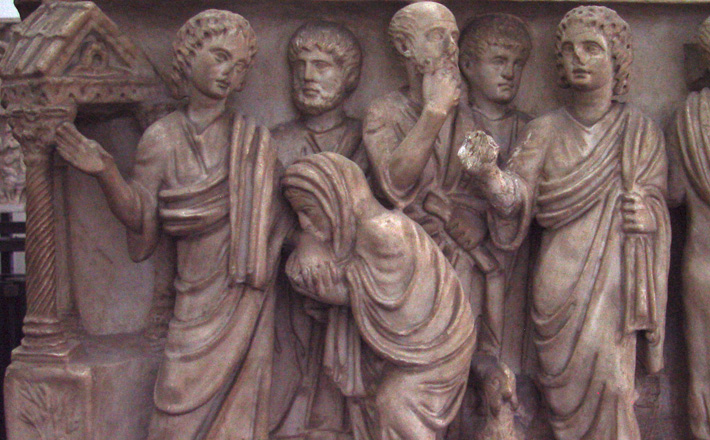Commentary on Psalm 103:1-8
Psalm 103 begins as a shout. “Bless the Lord, O my soul.”
It is an outburst of praise and awe from the center of the Psalmist. It is a cry of joy from the nephesh, the deepest well of the Psalmist’s being. This shout then turns quickly to catalogue of blessings that God has wrought. Between the cry of thanksgiving and the introduction of the heavenly resume, the Psalmist lifts up a warning: Do not forget all of God’s blessings.
We humans have a complicated relationship with memory. We are the only species that has conceived of history and has made any attempt to catalogue that history for the sake of remembering it. The whale does not care about yesterday. The jackal is not plagued by regret. The mollusk does not write books for posterity’s sake. Part of what it means to be human is to remember. Put another way, forgetting is inhuman. This is what makes a disease like Alzheimer’s so insidious. It attacks the very core of us, the nephesh, the innermost place where we build our identity according to where we have been, what we have done, and who we have met. Alzheimer’s dehumanizes us by eroding our memories.
It is nearly impossible to manage the present without the aid of the past, and without packaging that past into story. As humans, we make sense of the present and produce visions of the coming future by telling stories of the past. To forget is to open ourselves to recreating and refining all of the ways to dehumanize our neighbors and venerate other Gods. This is in the message of the book of Judges, a book with only a single Sunday lectionary passage. The people forget the past and forgetting damages their ability to worship God. And so they did what was right in their own eyes.
The first question of the Westminster Shorter Catechism asks, “What is the chief end of Humanity?” The answer: “To glorify God and enjoy God forever.” Our worship and enjoyment of God requires memory. To forget the past is to compromise our ability to glorify God. In Psalm 103, the outburst of praise and awe is integrally connected to the past deeds of God. The praise has content. The Psalmist remembers the forgiveness, the healing, the redemption, the coronation, the satisfaction, the vindication, the justice, the teaching. The Psalmist speaks in generalities but we could fill in these actions with stories of Israel’s past. Indeed, a nation who dined on the stories of the past would have no trouble in expanding this song with details from the journey from Egypt, the wanderings in the desert, the deliverance of the judges, the times of the prophets and the kings.
Similarly, we too could fill in the details. Each verse of Psalm 103 contains within it an incalculable amount of stories. Stories when the merciful God showed up, abounding in steadfast love. The beautiful part about poetry is that it dwells in the in-between spaces of our lives. Our language is capable of such specificity, and yet, even with a vocabulary that grows with each passing era (what’s a google?) we still fail to capture the full breadth of our experience. The wonderful thing about poetry is that it does not aim toward specificity but toward evocation. It combines words, images, and lines in order to evoke an experience that is outside the limits of our language. The beauty of Psalm 103 is not just in its recollection of God’s good acts, but also the evocation of the feelings and stories that accompany those acts. Between each verse of the Psalm is a whole library of stories.
Lately, I have been intrigued by all of the ways churches serve as the holders of memory. Our churches, especially older churches, literally have remembrances carved into them. My church has stained glass with names long forgotten by the congregation. Our hymn board was given in remembrance of a name forgotten by the congregation. As I reflect on Psalm 103, I am beginning to see these names in new light. They are like the lines of the Psalm in that they are reminders of the ways in which God met people in their need. They are records of God’s action. Commemorations of the acting God. As I reflect on those names, I am also beginning to know what it feels like to forget God’s benefits. To lose the stories of God and God’s people is tragic. I am therefore grateful that the space between the lines is a generative space, capable of birthing and holding the new stories of God’s steadfast love. What is lost can be found again, what was born can be reborn, what was dead can be made alive.


August 21, 2016